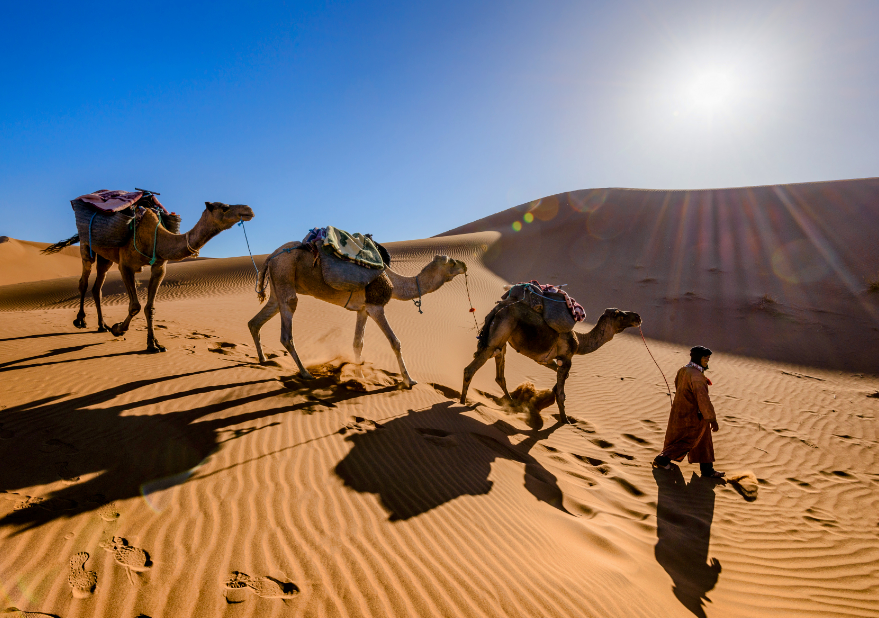
Climate change pushed humans back and forth across Arabia
International collaboration in Saudi Arabian archaeological research has uncovered previously unknown clues about the history of the region. The new findings include the oldest evidence of humans in Arabia, dating back 400,000 years.
The study, led by Dr. Huw Groucutt of the Max Planck Institute, found an interesting pattern. It seems that water sources fluctuated over long periods of time in what is now the Nefud Desert. When pools and streams of water formed, they created corridors for humans to travel, allowing access to previously inaccessible areas.
In one site, human habitation appeared sporadically at 400, 300, 200, 100 and 55 thousand years ago. Each human occupation brought with it a different stone tool culture, documenting the shift in technology over time.
The diversity of the region is highlighted by the difference in tools brought to archaeological sites by people who commingled at the same spots but arrived from different origins. Animal remains emphasize this point. Some animals came more from Africa while others were inhabitants or Arabia itself.
Dr. Groucutt explained the importance of his team’s research and how it changes our perspective. “Arabia has long been seen as empty place throughout the past. Our work shows that we still know so little about human evolution in vast areas of the world and highlights the fact that many surprises are still out there.”
The study shows that humans have always depended on a liveable climate to determine where they lived, even in a region that seems to be one of the most inhospitable on Earth. When water was available, people occupied the site until they were forced to move, a common pattern.
“It’s remarkable; every time it was wet, people were there,” said project leader Prof. Michael Petraglia. “This work puts Arabia on the global map for human prehistory.”
The research is published in the journal Nature.
—
By Zach Fitzner, Earth.com Staff Writer












